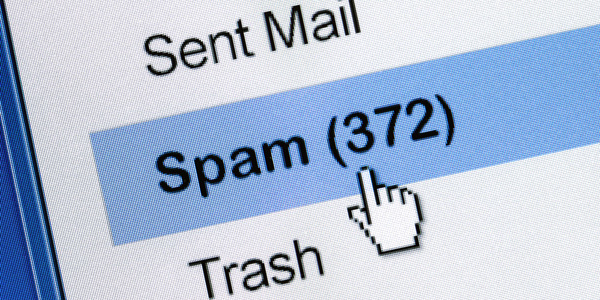INTRODUCTION
Spamming refers to sending unsolicited information, mainly through e-mails, and flooding the recipient’s mailbox for committing various offences and sending some contaminated viruses.
You wake up one morning, check your e-mail and find 100 e-mails in your inbox. You spend almost half an hour of your Internet access hours reading and deleting them since they are all unsolicited commercial e-mails. Welcome to the world of cyber scamming! Click Image To toggle selection and double click to open para to copy Spam is flooding the internet with many copies of the identical message, in an attempt to send the message on people who would not otherwise.
E-mail spam targets individual users with direct e-mail messages. In no other form of advertisement does the advertiser pay so less as compared to those to whom the advertisement is aimed. The receipt of unsolicited commercial electronic mail may result in costs to recipients who cannot refuse to accept such mail and incur costs for the storage of such mail, or for the time spent, reviewing and discarding such mail, or for both. It may impose high monetary costs on providers of Internet access services, as there is a finite volume of mail that such providers can handle without further investment. The incidents of sending such mail are increasingly and negatively affecting the quality of service provided to customers of Internet access service, and shifting costs from the sender of the advertisement to the provider of Internet access service and the recipient.[1]
INTERNATIONAL LAW RELATED TO FREEDOM OF SPEECH AND EXPRESSION
The right to freedom of expression is enunciated under Article 19 as Human Right in Universal Declaration of Human Right as well as in International Covenant on Civil and Political Rights which states that “everyone shall have the right to hold opinions without interference “and “everyone shall have the right to freedom of expressions; this right shall include freedom to seek, receive and impart information and ideas of all kinds, regardless of frontiers, either orally, in writing or print, in the form of art, or through any other media of his choice.” The Human Rights Council of United Nations on 5th July 2012 unanimously adopted a resolution to protect individuals’ free speech on the internet.
SHREYA SINGHAL V. UNION OF INDIA (2015) 5 SCC 1
In this case, the two women Shaheen Dada &Rinu Srinivasan were arrested by the police after showing displeasure by their comments on Facebook against the bandh, which was declared by the Shiv Sena people on the death of Bal Thackrey in 2012. They were arrested under 66A of the Information Technology Act 2000. After these two women were released, it was found that police had misused its power by invoking Section 66A, contending that it violates the freedom of speech and expression. In 2013, the Central government issued an advisory under which the police cannot arrested without prior approval of the Inspector General of police or any Senior officer. These women reached SC by filing a PIL under Article 32 against Section 66A, Section 69, and Section 79 of the IT Act, 2000. The Petitioner argues that section 66A infringes the fundamental right of speech and expression, and it is not saved by any of the subjects mentioned under Section 19(2) of the Constitution of India. It was also contended that this section creates a huge vagueness and gives arbitrary powers to the authorities.
The issues involved were as follows:
- The Constitutional validity of Section 66-A, 69-A, and 79 were challenged.
- Whether Section 66A is curtailing freedom of speech and expression.
- Whether Section 66A is saved under Section 19(2)?
The Supreme Court agreed with the Petitioner that none of the grounds contained in Section 19(2) was capable of being invoked as legitimate defenses to the validity of Section 66A of the IT Act. They believed that the term offensive in Section 66A of the IT Act is very vague. The bench held that Section 66A tells us about the medium through which the information should be disseminated. It does not define the nature of the contents. The bench held that Section 66A creates an offence against persons who use the internet and annoy or cause inconvenience to others very clearly affects the freedom of speech and expression of the citizen of India at large in that such speech or expression is directly curbed by the creation of the offence contained in Section 66A. The bench took note of the various cases to support their point on freedom of speech and expression. The cases are Romesh Thapper v. State of Madras[2], Khushboo v. Kanniamal&Anr[3], and Bennett Coleman & Co. v. Union of India & Ors[4].
The bench held that the Section 66A creates an offence which is vague and overbroad and thus, unconstitutional. The bench held that this case involves the rule of severability. With this application, only Section 66A was held to be unconstitutional and not the entire Act. This section was separated from the entire Act and hence held to be unconstitutional. The bench held that section 66A was unconstitutional also on the fact that it involves speech that’s innocent and is liable therefore to be used in such a way as to have a chilling effect on free speech and would, therefore, have to be struck down on the grounds of overbreadth. Section 66A of the Information technology Act, 2000, was struck down in its entirety being violative of Article 19(1)(a) and not saved under Article 19(2). The bench held that Section 69A of the IT Act states about blocking for access of information by the public are held as constitutionally valid.
CONCLUSION
Protection of Freedom of Speech and Expression is incredibly important to take care of the integrity of democracy. Freedom of Speech and Expression is the basic pillar of democracy. The reasonable restriction has got to be there to manage freedom of speech and expression. Therefore, a reasonable restriction on freedom of speech and expression has got to be there even in CyberSpace, in order that people do not misuse their rights. Just by commenting on something, nobody is arrested, this is often a violation of basic fundamental rights given by the constitution. The judgment has preserved and saved the liberty of speech and expression given to people under Article 19(1)(a) of Indian Constitution and also restraining the state from arbitrary application of power in context to freedom mentioned under Article 19 of the constitution, at the identical time given clear guidelines for further enacting a law regarding reasonable restriction on fundamental right and freedom which is provided in the Indian constitution. However, miss imploring the principle of transparency for rules to dam the web site. Needs some further interrogation and fine-tuning in relevancy viewers right as he or she must know why the state isn’t allowing them to own certain information which reason is challenged by the viewers also.
[1] Findings, S. 630, CAN-SPAM Act of 2001 (introduced in the Senate). Available at <http://thomas.loc.gov>.
[2] AIR 1950 SC 124.
[3] (2010) 5 SCC 600.
[4] (1972) 2 SCC 1788.
Shishir Yadav
Faculty of Law, University of Lucknow
Via LawMentor


